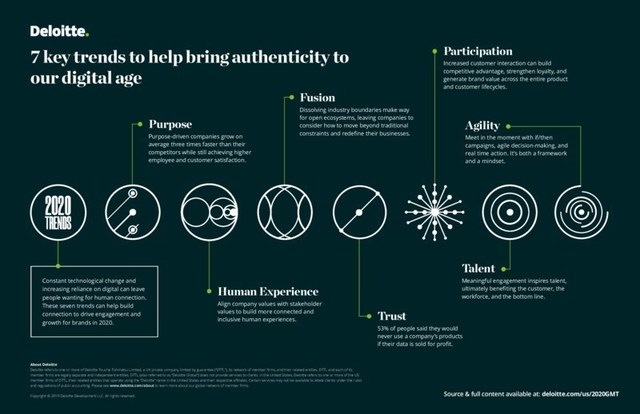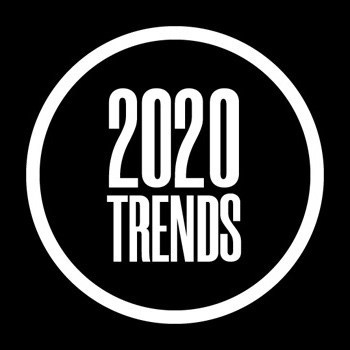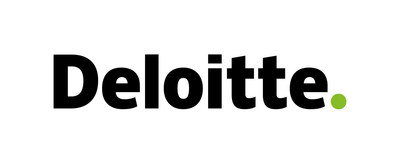Deloitte Publishes Inaugural 2020 Global Marketing Trends Report: Identifies Seven Key Trends to Help C-suite Leaders Place Humans at the Center of Their Work
Press Releases
Oct 15, 2019
NEW YORK, Oct. 15, 2019 /PRNewswire/ —

Key takeaways
- Trends encompass purpose, human experience, fusion, trust, participation, talent and agility.
- A common theme across all trends — human connection matters more than anything else.
- In an increasingly digital world that often lacks a human touch, people can feel more isolated, underrepresented and unfulfilled; all reasons why the human experience is vital today.
- Digital technologies are making it easier for consumers to navigate through their busy lives, but they can also erode a human connection — increasingly creating an “experience debt” between brands and their customers.
- Companies that lead with purpose and build their ecosystems around it can achieve greater loyalty, consistency and relevance with consumers and their employees.
Why does it matter to C-suite leaders?
Every organization and individual is operating in an era of unprecedented technological innovation. According to Statista’s Internet of Things report, there are more than 26 billion smart devices in circulation — that is, more than three smart devices on average for every person across the globe — C-suite leaders are challenged to form authentic digital connections with key stakeholders. This report is designed to guide C-suite leadership in developing strategies for today’s fast-changing digital age, while keeping the human experience at the center of their work. Through interviews with more than 80 subject matter experts across the globe, Deloitte identified seven key trends that likely every business will need to focus on over the next 18 to 24 months to continue evolving socially and human-conscious enterprises.
Elevating the human experience
While digital technologies make it easier to navigate through busy lives, they can erode the fundamental elements of human connection. When digital connections —personal and professional — lack a human touch, people can feel isolated, underrepresented and unfulfilled. This can result in quick answers to narrowly defined problems versus more sustainable solutions. The rapid pace of digital change is adding to a buildup of these unintended consequences, which Deloitte calls “experience debt.” This debt has far-reaching implications for humans who navigate these digital solutions. To pay down this experience debt, organizations and their ecosystems should focus on elevating the human experience. For businesses, this means striving to address unmet human needs for connection by aligning customers, the workforce, and partners to a common purpose.
Purpose is everything
A clear purpose can be critical for organizations — it articulates why an organization exists, what problems it is trying to solve, and who it wants to be to each human it impacts. Businesses are using purpose to create deeper connections with consumers, doing more for the communities in which they work, attract and retain talent, and achieve greater results and impact in the process. Companies that lead with purpose and build around it can achieve continued loyalty, consistency and relevance in the lives of consumers. What’s more, according to recent data from the June 2019 Harvard Business Review article, “181 Tops CEOs Have Realized Companies Need a Purpose Beyond Profit,” companies with high levels of purpose outperform the market by 5–7% per year, on par with companies with best-in-class governance and innovative capabilities. By leading with purpose, many companies are outpacing their competitors and leaving an impact on everyone they touch.
The amplification of consumer participation
According to Deloitte’s “Driving band loyalty with emotion” study, nearly 75% of consumers say they expect two-way relationships with organizations they do business with. Increased customer interaction can build competitive advantage and develop a stronger relationship with the brand. Technology provides new opportunities for consumers, citizens, and communities to engage directly in shaping, influencing, building and co-creating the overall brand. Identifying how, and in which areas, to integrate customer participation into the consumer journey and the product lifecycle can be overwhelming. However, by using the models and approaches best suited to an organization’s brand and marketing strategy, businesses can successfully achieve and benefit from customer participation.
Are you a trust buster or builder?
Trust is a primary determinant in how people assess brands. In fact, according to one survey by Sprout Social, nearly 9 out of 10 Americans (86%) believe that business transparency is more important today than ever before, and 7 out of 10 (73%) will pay for products that promise total transparency. Customers, regulators, and the media expect brands to be open, honest, and consistent across all aspects of their business — from products and promotions to workforce culture and partner relationships. In an era of connected technology and big data analytics, companies should create a structure that systematically builds trust by protecting what stakeholders value most, customer data and privacy. At the same time, they should proactively detect threats in the domains of cybersecurity, data protection, regulatory compliance and reputation. By supporting the trust agenda with respect to customer data and ethical use of artificial intelligence, brands can create a more coherent, relevant and less invasive customer experience.
Key quotes
“Deloitte has made it our mission to understand what customers want when they interact with brands and to arm our clients with the latest insights and research to shape more human-centric experiences for both customers and employees. Our ‘Global Marketing Trends’ report is meant to help those leaders elevate their overall marketing approaches, attract high-caliber talent and drive growth.”
– Diana O’Brien, global chief marketing officer, Deloitte LLP
“From the C-suite to the front-line workforce, technological changes are impacting every aspect of an organization and its people. With this report, we set out to explore how brands can navigate the increasingly digitized business, economic, and social environment in a way that helps foster more authentic, meaningful human connections.”
– Anthony Stephan, principal, Deloitte Consulting LLP and U.S. head of Deloitte Digital
Fusion is the new business blend
Traditional boundaries are disappearing, signaling a fusion of once disparate industries. Consequently, brands are moving from being isolated entities to being members of far-reaching ecosystems. Many leading companies are seeking new ways to establish themselves in these much broader ecosystems — or risk being disrupted by new competition. Businesses that solve unmet needs through fusion with smart, open ecosystems can systematically displace competitors that are unwilling (or unaware) to do the same. Organizations can expand to new business areas by looking beyond industry boundaries to address customer needs, identify opportunities for growth and partnerships, and create new value for customers.
Diffusing agility across the organization
Many leading brands are differentiating themselves by embracing agile ways of working and predictive technologies to gain a share of culture and conversation rather than just share of voice or brand impression. Other brands should follow suit, moving from reactive to proactive engagement to address the wants and needs of customers. For this, companies can restructure their marketing functions, leverage the power of real-time data accessed through digital platforms, and quickly gain insights to design more personalized, human experiences in an agile manner. Agility is both a framework and mindset, which often requires an organizational shift and built-in internal capabilities and cross-functional teams that accelerate their reaction time to capitalize on societal moments.
Valuing your most important asset — talent
An organization’s people — arguably its most important asset, now consists of a diverse swath of individuals, including brand ambassadors, giggers, social influencers and partners. These individuals reside both inside and outside the walls of the organization. This diverse workforce can require an approach that values an individual’s experience and nurtures the “entire person,” enabling them to evolve and develop new skills and relationships, while building loyalty toward brands and places of employment. What’s more, organizations with the best workforce experiences also enjoy 12% greater customer satisfaction than other organizations, and their three-year revenue growth rate is 2.3 times greater, according to “Powering your bottom line through employee engagement” by UNC Kenan-Flagler Business School.
Methodology
The Global Marketing Trends report curated interviews with more than 80 subject matter experts across the globe — including the United States, Canada, the United Kingdom, Germany, China, Brazil, Australia and others — to identify the most pressing trends that every business will have to focus its attention on over the next 18 to 24 months to build a socially and human-conscious enterprise. The report integrates new research and analysis (both through survey instruments and C-suite interviews), insights from academic literature, and stories from the field. Seven trends were identified through the research and detailed in this report: Purpose, Human Experience, Agility, Participation, Fusion, Talent and Trust. www.deloitte.com/us/2020GMT
About Deloitte
Deloitte provides industry-leading audit, consulting, tax and advisory services to many of the world’s most admired brands, including nearly 90% of the Fortune 500® and more than 5,000 private and middle market companies. Our people work across the industry sectors that drive and shape today’s marketplace — delivering measurable and lasting results that help reinforce public trust in our capital markets, inspire clients to see challenges as opportunities to transform and thrive, and help lead the way toward a stronger economy and a healthy society. Deloitte is proud to be part of the largest global professional services network serving our clients in the markets that are most important to them. Our network of member firms spans more than 150 countries and territories. Learn how Deloitte’s more than 312,000 people worldwide make an impact that matters at www.deloitte.com.
Deloitte refers to one or more of Deloitte Touche Tohmatsu Limited, a UK private company limited by guarantee (“DTTL”), its network of member firms, and their related entities. DTTL and each of its member firms are legally separate and independent entities. DTTL (also referred to as “Deloitte Global”) does not provide services to clients. In the United States, Deloitte refers to one or more of the US member firms of DTTL, their related entities that operate using the “Deloitte” name in the United States and their respective affiliates. Certain services may not be available to attest clients under the rules and regulations of public accounting. Please see www.deloitte.com/about to learn more about our global network of member firms.


![]() View original content to download multimedia:http://www.prnewswire.com/news-releases/deloitte-publishes-inaugural-2020-global-marketing-trends-report-identifies-seven-key-trends-to-help-c-suite-leaders-place-humans-at-the-center-of-their-work-300937496.html
View original content to download multimedia:http://www.prnewswire.com/news-releases/deloitte-publishes-inaugural-2020-global-marketing-trends-report-identifies-seven-key-trends-to-help-c-suite-leaders-place-humans-at-the-center-of-their-work-300937496.html
SOURCE Deloitte



